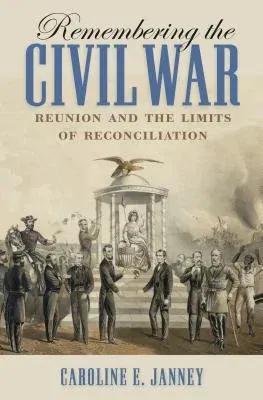Caroline E Janney
(Author)Remembering the Civil War: Reunion and the Limits of ReconciliationPaperback, 1 August 2016

Qty
1
Turbo
Ships in 2 - 3 days
In Stock
Free Delivery
Cash on Delivery
15 Days
Free Returns
Secure Checkout
Part of Series
Littlefield History of the Civil War Era
Print Length
464 pages
Language
English
Publisher
University of North Carolina Press
Date Published
1 Aug 2016
ISBN-10
1469629895
ISBN-13
9781469629896
Description
Product Details
Author:
Book Format:
Paperback
Country of Origin:
US
Date Published:
1 August 2016
Dimensions:
23.37 x
15.49 x
3.05 cm
ISBN-10:
1469629895
ISBN-13:
9781469629896
Language:
English
Location:
Chapel Hill
Pages:
464
Publisher:
Weight:
698.53 gm

